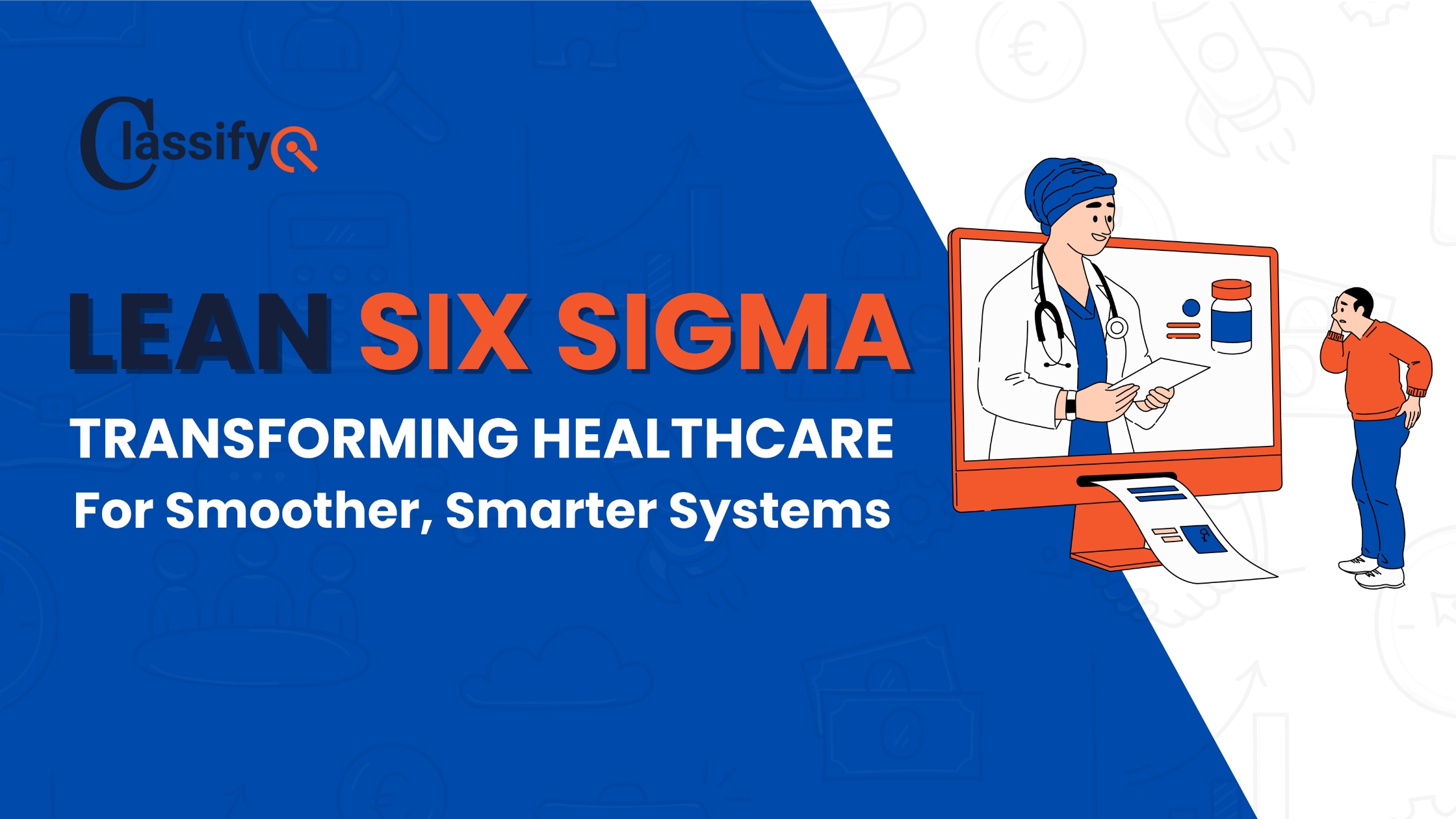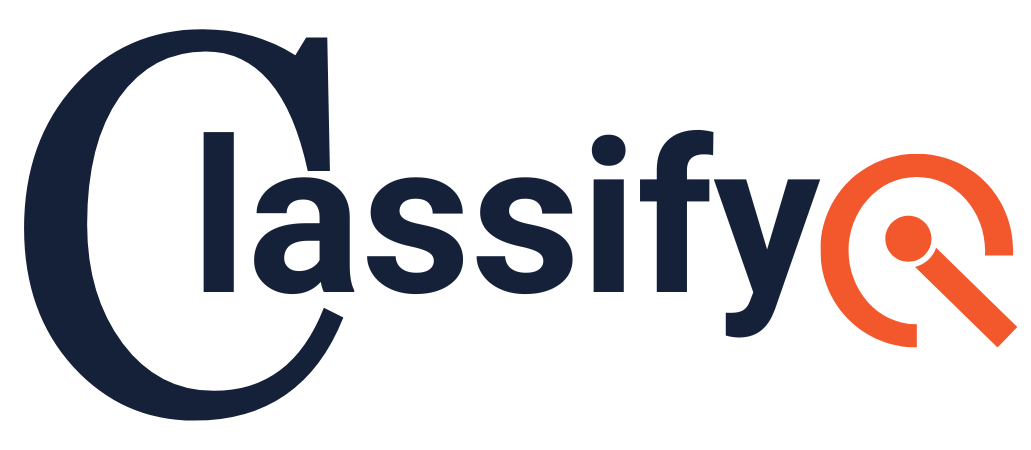
How Lean Six Sigma Is Revolutionising the Healthcare Industry
Why Patients Are Losing Patience with Healthcare Today
The patient’s patience is being lost due to long queues, late reports, errors, and misbehavior…
Patient’s patience is being lost due to waiting in long queues, late medical reports, sometimes wrong reports, and misbehaviour of the staff. All these are common problems faced by civilians in the healthcare system even today!
The One-Stop Solution: Lean Six Sigma in Healthcare & Medicine
Worry not! The solution to all these is provided by one single framework Lean Six Sigma in Healthcare & Medicine.
What is Lean Six Sigma in Healthcare?
Lean Six Sigma is a combination of two powerful systems Lean and Six Sigma. In which Lean focuses on eliminating waste and streamlining every process. Whereas Six Sigma aims to reduce defects and errors to zero, in which data analysis and structured improvement techniques are used.
With this method, all the hospitals and clinics will become efficient without any extra cost or manpower; now whatever is needed will be there, and that is not a long process it’s a smart process.
The Game-Changing Impact of Lean Six Sigma
This is not just a management tool but a game-changing solution in the field of healthcare that improves everything from patients’ experience to doctors’ work-life balance. When both of these are applied in the context of healthcare, the results are very impressive such as reduction of patient wait times, increase in OPD efficiency, elimination of pharmacy errors, and the overall hospital system becoming more responsive and reliable.
Today’s hospitals and medical institutions are facing many serious problems, such as overcrowded emergency rooms, staff burnout, inefficient equipment utilisation, or breakdown of internal communications. All of these have a direct impact on patient care.
DMAIC: The Core of Lean Six Sigma Healthcare
The approach of Six Sigma healthcare is to get to the root cause of the problem and make step-by-step improvements. It uses “DMAIC” (Define, Measure, Analyse, Improve, and Control) methodology. This structure ensures that all changes are data-based and sustainable.
Real-World Impact of Lean Six Sigma
H3 Emergency Room Efficiency Improved by 27%
Talking about real-life examples, many hospitals have drastically improved their operations by applying Lean Six Sigma. For example, a U.S.-based multi-speciality hospital analysed the flow of the ER (emergency room) and redesigned the process from patient triage to discharge through the DMAIC framework.
OPD Wait Times Cut by 38%
This improved their emergency room throughput by 27%. In another case, the OPD department identified bottlenecks between patient registration and consultation and eliminated non-value-adding steps, which resulted in reducing the average patient wait time by 38%.
Benefits for Hospital Staff and Systems
In pharmacy also, Lean Six Sigma tools such as control charts and root cause analysis reduced prescription-related errors by 60%.
Another major benefit is that staff feel empowered they do not just follow instructions but are part of the improvement. Participation in this process gives them a sense of ownership and improves overall team morale.
Lean Six Sigma in Healthcare Supply Chain
Lean Six Sigma in supply chain management has proven very effective in the healthcare sector as well. It improves demand forecasting, prevents both stock-outs and overstock, and brings transparency to the procurement process. When the supply chain is working properly, doctors and nurses are able to focus on their core work without the stress of resource shortages.
Comparing Manufacturing vs. Healthcare Lean Six Sigma
Some people think that Lean Six Sigma is only for the manufacturing industry. But when we compare Lean Six Sigma in manufacturing and healthcare, the difference is only of context. In manufacturing, the output is a product in healthcare, the output is a human life. A delay or defect in manufacturing means cost loss, but in healthcare, a delay or error can put someone’s life at risk. But the principles of process optimisation work the same way both ways variation control, process standardisation, and quality monitoring.
In today’s era when AI, data science, and digital health are growing, medical knowledge alone is not enough for healthcare professionals. People who go through Lean Six Sigma have an extra advantage they are able to understand the efficiency of the system and take leadership in it. That is why today the Lean Six Sigma healthcare certification has become a highly respected qualification. Whether you are a doctor, a hospital administrator, or a medical student this certification can be a strong accelerator for your career growth.
Why Lean Six Sigma Certification Matters
Now the question arises which Six Sigma certification is most recognised The most respected certifications at the global level are:
- IASSC (International Association for Six Sigma Certification)
- ASQ (American Society for Quality)
- IQF (International Quality Federation)
Certifications from these organisations are globally accepted in the healthcare, pharma, and life sciences industries and are valued in both hiring and promotions. Green Belt certification is perfect for mid-level professionals who handle projects, and Black Belt is for people who lead transformation processes in leadership roles.
If you wish to complete your certification from home, Lean Six Sigma Healthcare Certification is also available online. Specifically, platforms like Classify IQ have made online learning very accessible. Classify IQ’s certification programs are 100% online, giving you lifetime access, industry projects, and expert-led training.
Certification Gives You the Edge
The Green Belt course is available for ₹15,999 and the Black Belt for ₹21,999. They practically explain the DMAIC model, hypothesis testing, statistical tools, and case studies. Their curriculum is ASQ/IASSC-aligned, which means you earn a globally recognised certificate.
You don’t need to join a full-time course or travel for training. Platforms like Classify IQ offer 100% online certification that is:
- Self-paced
- Affordable
- Globally recognised
- Led by industry experts
- Packed with real-world healthcare case studies
Healthcare professionals who complete the Classify IQ course experience an average 30–40% salary boost. Lean Six Sigma certification has become a must-have skill for career roles like hospital quality analyst, clinical process consultant, healthcare operations manager, and patient safety officer. This certification not only gives you knowledge but also the confidence that you can bring about real change in your hospital system.
Classify IQ focuses on real-world applications, not just theory. Its modules are specially designed for healthcare professionals. A Yellow Belt course is also available for beginners, which clears the basic concepts. And if you are already a working professional, then Green or Black Belt certification would be ideal for you. Their courses are flexible too; you can learn as per your schedule, whether you are a doctor, nurse, or admin staff.
Conclusion
Today healthcare is evolving digitalisation, AI integration, policy changes, everything is happening fast. In this new era, the demand for process-driven leadership has increased. Lean Six Sigma not only makes you a certified professional but also makes you a systems thinker and solution leader. When you improve patient care on the basis of data, you not only increase the efficiency of your work but also enhance someone’s life and dignity.
So if you want to be truly impactful in the healthcare industry in 2025, then gaining knowledge and certification of Lean Six Sigma is a no-brainer. Whether you are a fresher or an experienced professional, you can get certified in 3–6 months by starting today. And when you get certified by a trusted platform like Classify IQ, you get a community that guides you, mentors your projects, and makes your learning lifelong relevant.
Today’s healthcare is not just medicine; it is also management. And the professionals who understand both will become the leaders of the future. With Lean Six Sigma, you can solve hospital problems through numbers and take patient experience to the next level. So what are you waiting for?
Get certified, upgrade your skills, and be a part of the true transformation of healthcare in 2025.
















